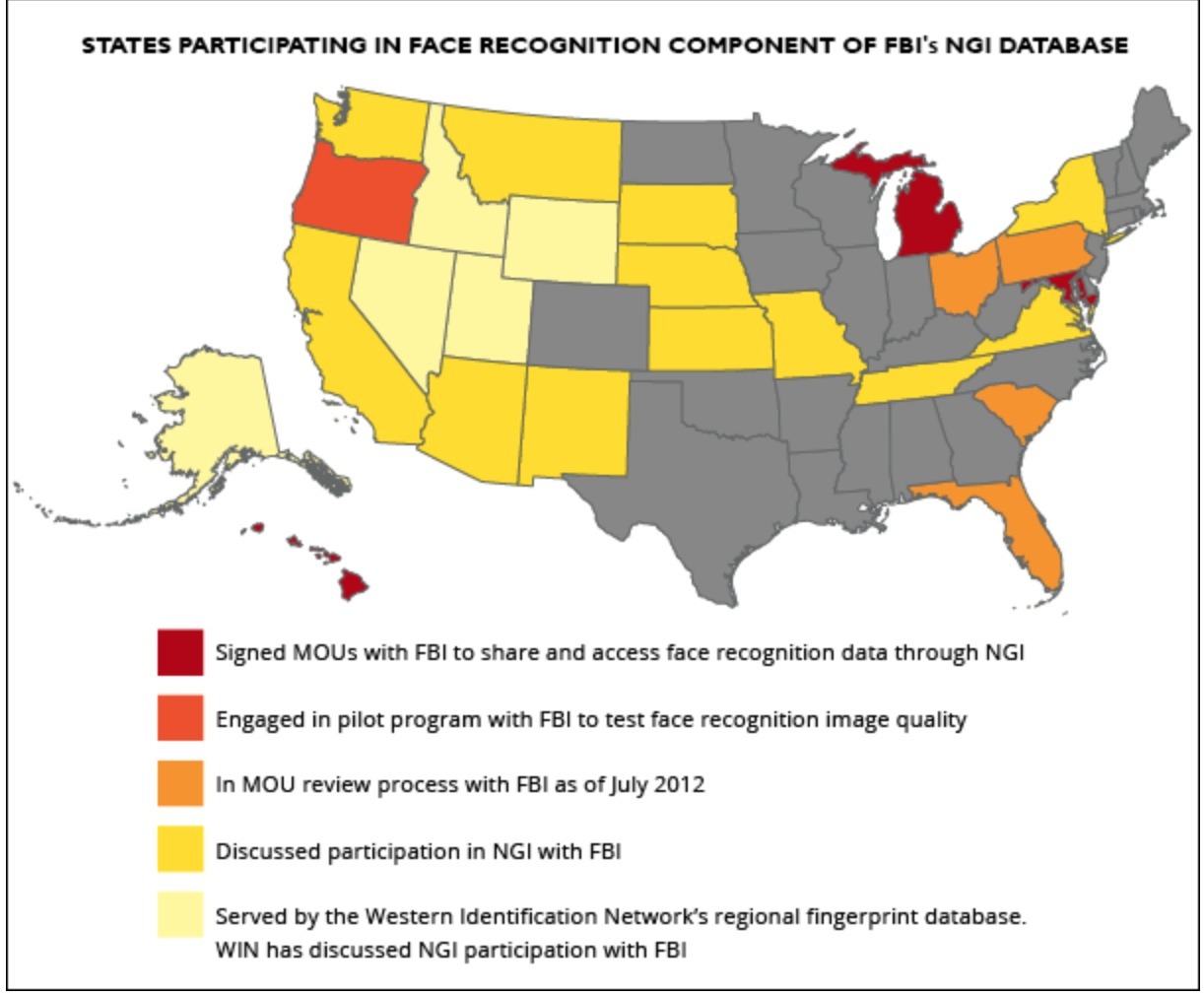I have highlighted the Electronic Frontier Foundation (EFF) and it great work on this website on many occasions. The organization has been at the forefront of many privacy and civil liberties related issues, including the increasing use of drones by the U.S. government domestically, unconstitutional NSA spying, as well as a host of other issues.
The latest article from them that caught my attention was published a couple of days ago, and shines light on the disturbing push by the FBI to create an extensive facial recognition database, which will include criminal and non-criminal photos alike. The information received by the EFF via a Freedom of Information Act (FOIA) request, demonstrates that the feds may have a mugshot database with up to 52 million photos by 2015.
The program is called Next Generation Identification (NGI), and the aspect of it that bothers the EFF most is the fact that non-criminal and criminal photos will be combined in the same database. So someone who has no criminal record can suddenly be flagged as a suspect just because an algorithm says so. What’s worst, research shows that the potential for false positive identification increases as the dataset increases.
To see if your state is participating, take a look at this map courtesy of the EFF.
More from the EFF:
New documents released by the FBI show that the Bureau is well on its way toward its goal of a fully operational face recognition database by this summer.
EFF received these records in response to our Freedom of Information Act lawsuit for information on Next Generation Identification (NGI)—the FBI’s massive biometric database that may hold records on as much as one third of the U.S. population. The facial recognition component of this database poses real threats to privacy for all Americans.
NGI builds on the FBI’s legacy fingerprint database—which already contains well over 100 million individual records—and has been designed to include multiple forms of biometric data, including palm prints and iris scans in addition to fingerprints and face recognition data. NGI combines all these forms of data in each individual’s file, linking them to personal and biographic data like name, home address, ID number, immigration status, age, race, etc. This immense database is shared with other federal agencies and with the approximately 18,000 tribal, state and local law enforcement agencies across the United States.
Donate bitcoins: 35DBUbbAQHTqbDaAc5mAaN6BqwA2AxuE7G
Follow me on Twitter.



